Garlan Grudger’s family provides updates after he was airlifted to UAB Hospital following an accident on Smith Lake
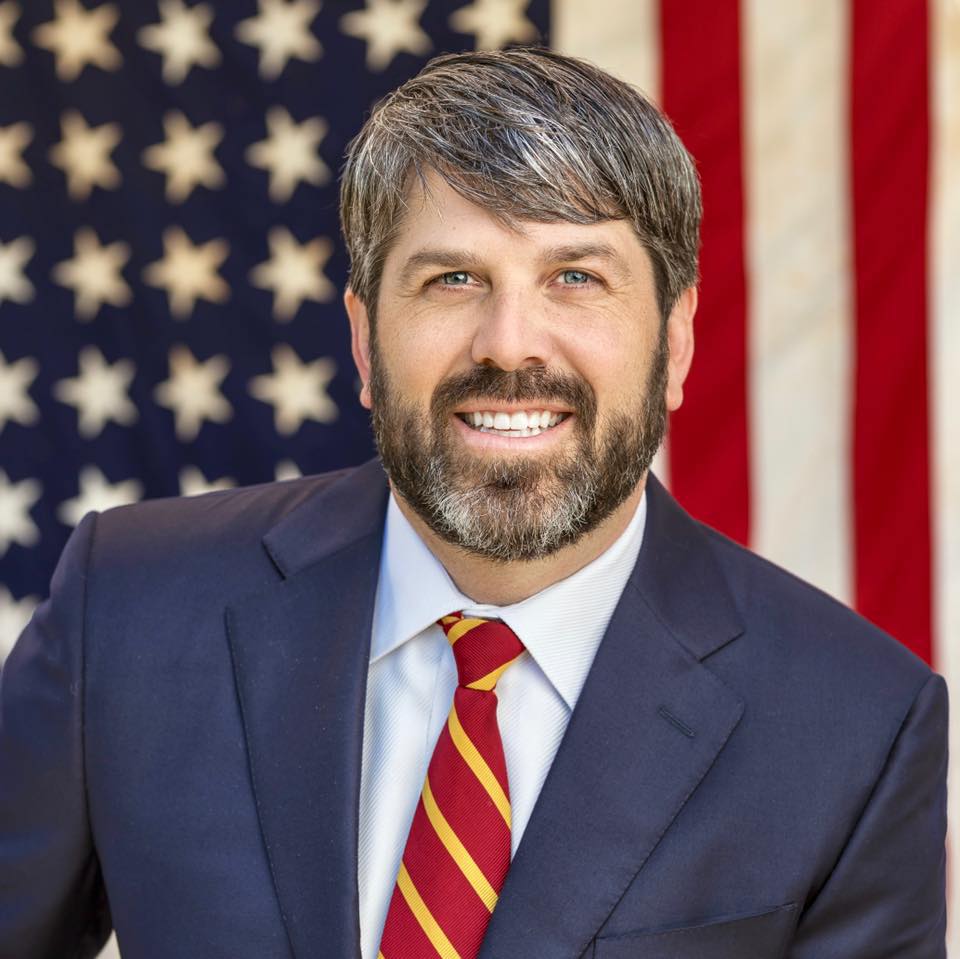
State Senator Garlan Grudger was airlifted to UAB Hospital in Birmingham on Thursday, the Fourth of July after sustaining injuries in a jet ski accident on Smith Lake. A statement from his office said “While at UAB, he underwent a brief surgical procedure to address internal bleeding and incurred other injuries that doctors are monitoring. The two-term senator is currently in the Intensive Care Unit following his surgery, but his physicians indicate that the prognosis for his recovery is good.” According to the statement, Grudger’s wife, Heather Grudger said, “From the first responders who were quickly on the scene to the members of the helicopter airlift unit to the doctors and nurses at UAB and everyone else who assisted during this accident, we offer our deepest thanks and recognition that each of them kept a difficult situation from being even worse. To those across the state who have reached out and lifted up our family with their prayers of mending and comfort, we feel your support and know that God holds Garlan in his healing hands. Everyone who knows Garlan is aware that he is a strong, tough, and energetic man who will recover from these injuries and continue serving the citizens of his district while promoting the conservative Alabama values that so many of us hold close.” Dot Grudger posted a statement Friday morning saying, “I just wanted to give an update on Garlan and to tell all of you thank you so much for reaching out to our family. It is wonderful to have praying Christian friends who care about you. I just spoke to his doctor and he is doing remarkably well considering that he was run over by a JetSki!! things that could have happened did not and he is in lots of pain, but I suppose that’s to be expected considering the circumstances. He had surgery on his spleen and the artery to the spleen. He has broken ribs and chipped vertebrae. All of this is causing much pain, especially in his back. They are going to get him up today for Walking and I dread that for him so please pray because it’s going to be very painful. Again, thank all of you and continue to pray for us because that’s what we need right now more than anything.”
Gov. Kay Ivey says Alabama is making progress on expanding digital infrastructure
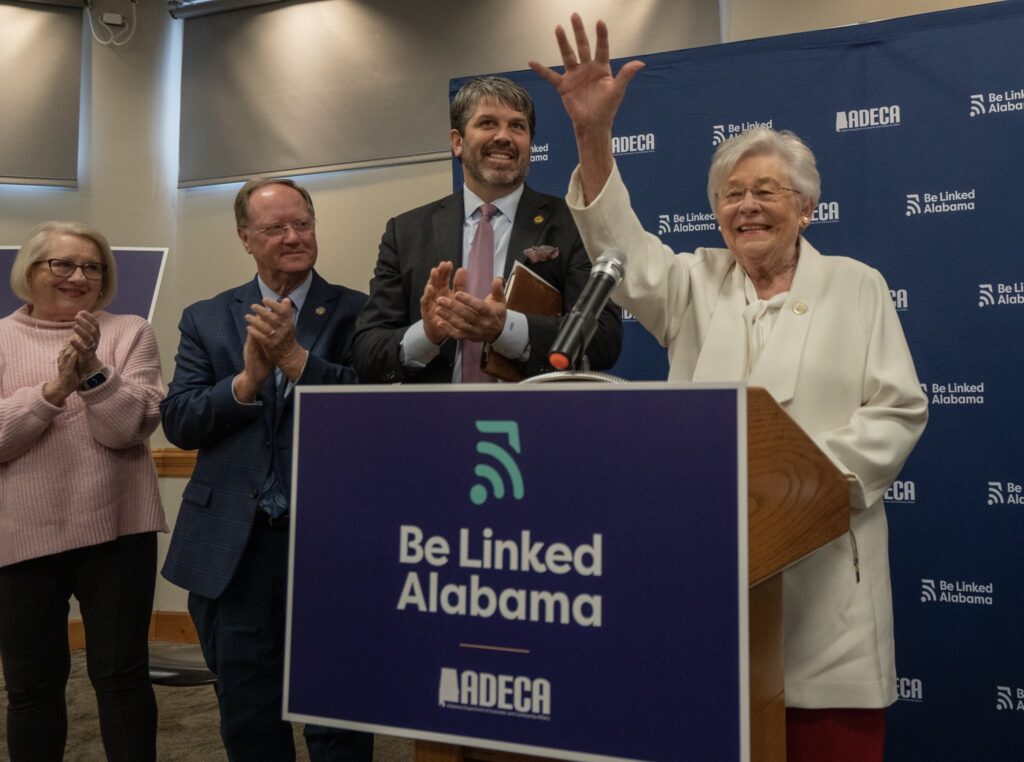
Alabama Governor Kay Ivey (R) on Monday continued her broadband tour with an event at Cullman Electric Cooperative in Cullman County. Ivey discussed upcoming broadband projects in Cullman and Winston counties. “Our presence in Cullman County today underscores our commitment to providing access to high-speed internet for every Alabamian,” said Gov. Ivey. “The remarkable strides made here, supported by the Alabama Broadband Accessibility Fund and Cullman Electric Cooperative, signify our dedication to connecting unserved residents. This milestone represents our journey towards statewide connectivity, demonstrating that when one community gains access, we all move closer to a more connected and prosperous Alabama.” Ivey was joined by Alabama Department of Economic and Community Affairs (ADECA) Director Kenneth Boswell, Cullman Electric Cooperative CEO Tim Culpepper, state Sen. Garlan Gudger (R-Cullman), and state Reps. Randall Shedd (R-Cullman) as well as Tim Wadsworth (R-Arley). The speakers addressed the nearly $7 million in grant and matching funds committed for broadband projects in the area. The broadband expansion will give over 1,300 currently unserved addresses the ability to be connected in Cullman and Winston counties. Ivey and Boswell also discussed the overall success of the Alabama Broadband Accessibility Fund (ABAF). ABAF is funded by the Alabama Legislature. It supports targeted projects in communities in need of high-speed internet access. These funds, awarded by Governor Ivey and managed by ADECA, give internet service providers the ability to execute projects that connect individual households, businesses, community anchor institutions such as libraries and schools, and others to broadband infrastructure. “A primary mission of mine in the Alabama Legislature is to ensure that every single Alabamian will have access to high-speed internet,” said Rep. Shedd. “I was proud to discuss the progress we have made so far in my district, and I look forward to continuing our work to make sure that all Alabamians can take advantage of the 21st-century technology that is critical to everyday life. These investments we have made through programs like the Alabama Broadband Accessibility Fund have already brought high-speed internet access to tens of thousands of households and businesses, with tens of thousands more on the way.” “Our continued progress in expanding high-speed internet access would not be possible without a unified team working hard every day to accomplish our state broadband goals,” said Director Boswell. “This team includes Governor Ivey, the Alabama Legislature, internet service providers, and others too many to name working together to make sure Alabama residents and Alabama communities have the tools needed to thrive.” Since 2018, Alabama has invested approximately $82 million in state dollars through grant awards supporting more than 100 projects through the Alabama Broadband Accessibility Fund. Once all Alabama Broadband Accessibility Fund projects awarded to date have been completed, access to broadband service will be available to more than 72,000 Alabama households, businesses and community institutions that currently have no option to subscribe. Following the program, Governor Ivey, speakers, and residents of Cullman and Winston counties participated in a ceremonial groundbreaking. Alabamians interested in learning more about what the state is doing to expand high-speed internet access are encouraged to visit the Be Linked Alabama website, a hub of internet expansion information and news. It includes the Alabama Broadband Map, county profiles and dashboards, and statewide broadband news. Be Linked Alabama represents the state’s united effort to expand access to affordable, reliable high-speed internet. As Alabama works toward achieving the goal of high-speed internet access for all, the statewide initiative is coordinated by ADECA and brings together partners from across the state, including Governor Ivey, the Alabama Legislature, internet service providers, research institutions, utility companies, community leaders, and the public. The state has received hundreds of millions of dollars through the American Rescue Plan Act and the infrastructure bill to spend on rural broadband projects. Broadband expansion combined with road and bridge infrastructure improvements, aggressive economic development efforts, and improving the state’s education system is all a part of Gov. Ivey’s broader plan to reverse the decades-long decline in rural Alabama counties. To connect with the author of this story or to comment, email brandonmreporter@gmail.com.
Kay Ivey breaks ground at second broadband stop, signaling digital infrastructure progress

On Monday, Gov. Kay Ivey made a second stop on her broadband tour at Cullman Electric Cooperative in Cullman County, discussing upcoming broadband projects in Cullman and Winston counties. Following the program, Governor Ivey, speakers, and residents of Cullman and Winston counties participated in a ceremonial groundbreaking. “Our presence in Cullman County today underscores our commitment to providing access to high-speed internet for every Alabamian. The remarkable strides made here, supported by the Alabama Broadband Accessibility Fund (ABAF) and Cullman Electric Cooperative, signify our dedication to connecting unserved residents,” said Governor Ivey. “This milestone represents our journey towards statewide connectivity, demonstrating that when one community gains access, we all move closer to a more connected and prosperous Alabama.” Made the second stop on my broadband tour this morning. For Alabamians in Cullman and Winston counties, there are projects underway to expand access to high-speed internet. I was proud to ceremonially break ground on them today. ⬇️ #alpolitics (1/2) pic.twitter.com/pGCfCfS9cR — Governor Kay Ivey (@GovernorKayIvey) December 4, 2023 Ivey was joined by Alabama Department of Economic and Community Affairs (ADECA) Director Kenneth Boswell, Cullman Electric Cooperative CEO Tim Culpepper, state Sen. Garlan Gudger (R-Cullman), and state Reps. Randall Shedd (R-Cullman) and Tim Wadsworth (R-Arley). The $7 million in grant and matching funds committed for broadband projects will give over 1,300 currently unserved addresses the ability to be connected in Cullman and Winston counties. ABAF, which is funded by the Alabama Legislature, supports targeted projects in communities in need of high-speed internet access. These funds, awarded by Governor Ivey and managed by ADECA, give internet service providers the ability to execute projects that connect individual households, businesses, community anchor institutions such as libraries and schools, and others to broadband infrastructure. “A primary mission of mine in the Alabama Legislature is to ensure that every single Alabamian will have access to high-speed internet,” said Rep. Shedd. “I was proud to discuss the progress we have made so far in my district, and I look forward to continuing our work to make sure that all Alabamians can take advantage of the 21st-century technology that is critical to everyday life. These investments we have made through programs like the Alabama Broadband Accessibility Fund have already brought high-speed internet access to tens of thousands of households and businesses, with tens of thousands more on the way.” Since 2018, Alabama has invested approximately $82 million in state dollars through grant awards supporting more than 100 projects through the Alabama Broadband Accessibility Fund. Once all Alabama Broadband Accessibility Fund projects awarded to date have been completed, access to broadband service will be available to more than 72,000 Alabama households, businesses, and community institutions that currently have no option to subscribe. “Our continued progress in expanding high-speed internet access would not be possible without a unified team working hard every day to accomplish our state’s broadband goals,” said Director Boswell. “This team includes Governor Ivey, the Alabama Legislature, internet service providers, and others too many to name working together to make sure Alabama residents and Alabama communities have the tools needed to thrive.” Be Linked Alabama represents the state’s united effort to expand access to affordable, reliable high-speed internet. The statewide initiative is coordinated by ADECA and brings together partners from across the state, including Governor Ivey, the Alabama Legislature, internet service providers, research institutions, utility companies, community leaders, and the public.
Alabama voter registration climbs, but turnout lags rest of nation
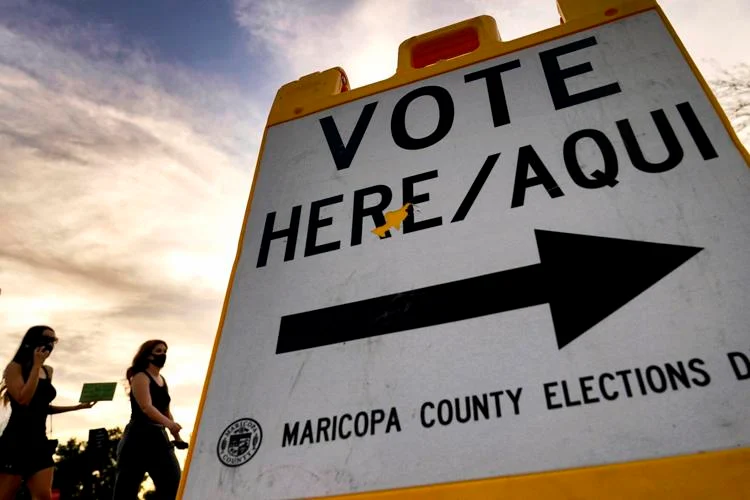
by Ralph Chapoco, Alabama Reflector September 15, 2023 This article is part of U.S. Democracy Day, a nationwide collaborative on Sept. 15, the International Day of Democracy, in which news organizations cover how democracy works and the threats it faces. To learn more, visit usdemocracyday.org. While Alabama has enjoyed record numbers in terms of people registering to vote, voter rights groups point to troubling signs despite those figures for voters gaining access to the ballot box to exercise their constitutional right as citizens. Alabama Secretary of State Wes Allen and his predecessor, John Merrill, have pointed to a 32% increase in voter registration in the last decade as a sign of greater interest in the process. But election turnout has lagged other states, even in presidential election years. More than 2.3 million Alabamians cast ballots in the 2020 presidential election. In terms of volume, that was a record, but it only represented 62% of Alabama voters casting votes, one of the lowest presidential turnouts in 30 years. “One of the things that we have seen, we are still seeing, is low turnout,” said Kathy Jones, president of the League of Women Voters of Alabama. “Presidential elections get high turnout, but in the elections at the local level, and during the midterms, you see pretty sad turnout. That is not good for democracy.” The reasons for the disparities have to do with culture, state laws that impede access to the ballot, and a lack of competitive elections. Allen and Merrill have turned to the public airwaves to claim credit for the number of active, and registered voters in Alabama. The state has steadily increased that number, going from about 2.8 million about a decade ago to roughly 3.3 million at the end of 2022. Through the end of August, the state’s voter rolls increased by an additional 30,000 people. Richard Fording, a professor of political science at the University of Alabama, said “the numbers aren’t bad.” But relatively few Alabamians exercise their right to vote, a continuation of a longstanding problem that has plagued the state for decades. According to data compiled by Michael McDonald, a political science professor at the University of Florida, only 37.3% of eligible voters turned out for the November 2022 elections, the fifth-worst in the United States. Mississippi, another southern state, fared the worst at 32.5%. Tennessee, West Virginia, and Indiana were the only other states with lower turnout than Alabama. The issue starts with the state’s history. “Alabama was classified as a state with a traditionalistic political culture,” Fording said. “That means a few different things, but with respect to the orientation of government participation, it is an elitist orientation.” That culture emerged from a backdrop of slavery, segregation, and disenfranchisement of large swathes of voters, mostly Blacks but also poor whites. Elites in the state maintained the status quo through literacy tests, poll taxes, and other discriminatory voting practices. Though those have been outlawed, their impact on the state’s political culture remains. “When there is a system that is the status quo, those who benefit from it want to rationalize that system, as being just,” Fording said. “And if they have the power to do that through various channels of socialization like the education system, then that is likely to become embedded somewhat permanently in the culture.” Several crosscurrents have taken shape that stem from that history that have served to depress voter turnout. “We have started out way behind,” Fording said. “And so, it is just harder to finish first when starting last.” Foregone conclusions The low turnout is not tied to a party. In the 2006 elections, when Democrats controlled the state Legislature, voter participation was 36%. Some demographic trends may play a role. Education tends to correlate with voter participation, and Alabama has a smaller percentage of college graduates than the nation as a whole. Party strength can also influence turnout. “In a large sense, there is not a lot of democracy because it is a foregone conclusion that most of the outcomes are going to be Republican,” said Thomas Shaw, an associate professor in the Department of Political Science and Criminal Justice at the University of South Alabama. The state is solid red, with the Republicans holding the governor’s office, all statewide elected positions, and the state Legislature. Democrats, once the dominant party in the state, have held onto power in the Black Belt and the state’s cities. But the state has not voted for a Democratic presidential nominee since 1976, and Democrats have won only one statewide election (the 2017 special election for U.S. Senate) since 2010. That can depress turnout. It also makes candidate recruitment difficult. The Democrats’ statewide candidates in 2022 were mostly inexperienced and underfunded. That depressed turnout to the point that normally safe Democratic legislative districts saw closer-than-expected races. “The people they put on the ballot in 2022 were no-name nobodies who got some of the least amount of support in the entire history of Democratic politics in Alabama,” said David Hughes, an associate professor of political science at Auburn University Montgomery. The state party is embroiled in a fight over its bylaws and leadership. Leaders of the party voted in May to disband three diversity caucuses and adopt new bylaws, replacing a set adopted in 2019 amid a Democratic National Committee (DNC) investigation. The DNC is investigating the May meeting. “I don’t think anybody would look at the state Democratic Party and say that it is functional,” Hughes said. All of that weighs on turnout, said Shaw. “If it is a presidential election, and you are a Democrat in Alabama, you know there is no chance that your candidate is going to get elected in Alabama; how does that make you feel about going to the polls,” he said. “It makes you feel like, ‘Why should I bother?’” Ballot access Legislators in recent years have also taken to making voting more difficult. Alabama does not have early voting or no-excuse absentee voting. The
Wes Allen addresses the Republican Women of Trussville

Alabama Secretary of State Wes Allen spoke on Thursday to the Republican Women of Trussville (RWOT) at the Trussville Civic Center. Allen said that he was sworn in as Alabama’s Secretary of State in January and that both of his two children are now in college. “It has been a big year,” Allen said. “We have got both kids out of the house. It is an adjustment when the kids move out.” “I was born and raised in Tuscaloosa County at the end of a dirt road,” Allen said. From 2018 to 2022, Allen represented Pike County in the Alabama House of Representatives. The group applauded him for sponsoring legislation forbidding doctors from performing gender-altering procedures and treatments on children. “I introduced the House legislation, but the man in the back of the room, (State Senator) Shay Shelnutt, was the man in the Senate,” Allen said. “It took us three years to get it passed.” Shelnutt said, “It should not have taken that long.” “Those procedures, no matter what they tell you, is not reversible,” Allen continued. “It is tied up in federal court,” Allen said. “We will see how that progresses.” RWOT President Terri LaPoint praised the group for their door-knocking to help elect Mike Bolin to the Jefferson County Commission in a recent special election, thus maintaining a 3 to 2 Republican control of the Commission. “Mile Bolin’s win – that was a huge race,” Allen said. “Door knocking makes a big difference. “The best thing we can do is elect conservative people at the local level,” Allen said. “Mike Bolin – it is important to elect conservatives at the county commission level, at the city council level, at the school board level. We have seen how important it is to have conservatives on the library board. Prior to his service in the legislature, Allen was the Probate Judge of Pike County. Allen said his experience as a probate judge helped prepare him to be Secretary of State. “They are our customers,” Allen said of persons coming to their office. “We may not have the government service they want, but they are looking for help. It is our duty as public officials to help them with their problem.” Sometimes the people who came to the Pike County Probate Judge’s office were not in the right office. “Whether or not we could help their problem, we wanted to get them to the right place,” Allen explained. “I take that philosophy with me to the Secretary of State’s office.” “The Secretary of State’s office has 40 employees,” Allen explained. “35 are merit-based. They are here from administration to administration. We have some that are political appointees – the executive staff: Chief of staff, legal counsel, deputy legal counsel, director of legislative affairs, that sort of things.” “We have had a lot of speaking requests,” Allen said. His focus has been on doing the job and “getting things done” in his first six months on the job. “We are now moving around a little more. It is a pleasure to be here.” Allen said that his office recently became aware of a scam using the name of the Alabama Secretary of State’s office. “We are working closely with the Securities Exchange Commission to make sure they don’t get any kind of money, no matter how small,” Allen said. Allen said that he does not court attention and just does his job. “I shouldn’t be running over people to get in front of a camera,” Allen said. Allen said it is important for him to get out into communities and explained that he schedules two or three meetings in towns that he visits to get the pulse of that community. “We want to make sure that we are not so connected in Montgomery that we forget what is happening in Trussville or what is happening in Moulton,” Allen said. “We are fighting fraud in the election side as well,” Allen said. “As a former probate judge, I know what it is like to be at the courthouse at 5:30 on election day, and I know what it is to be the last person to walk out of the courthouse and lock the doors.” “There will be a lot of eyeballs on these secretary of states offices next year,” Allen said. “We are already making preparation for 2024.” “We had illegal immigrants who were stealing IDs in North Alabama,” Allen said. “They were even voting in local elections.” “We removed a board of registrar for registering people who did not live at the location where she registered them,” Allen said. “We removed her. We are not a prosecuting agency, so we turned it over to the local DA in Houston County.” “It all starts in the Board of Registrars offices,” Allen said. “They do a wonderful job, but we had this one person we needed to remove.” “The more I learned about ERIC and studied it, it was really a data mining operation,” Allen said of his controversial decision to withdraw from the ERIC system for managing the voter rolls. “It has been like eight states that have followed our lead,” Allen said. “I cannot talk about the Alabama whole plan that we are putting out yet, but I think you will be proud of what we come up with.” Allen said that in his legislative agenda, “We wanted to solidify our election process.” “It doesn’t take Alabama weeks to count ballots like you have seen across the country,” Allen said. “With the help of Shay Shelnutt, we are always going to have a paper ballot to vote on even after I am gone. Matt Simpson carried it in the house.” “You will always vote on paper ballots in Alabama,” Allen said. “A great piece of legislation. It is common sense.” Allen said that Sen. Clyde Chamblis and Simpson carried his legislation “to make sure that our tabulators cannot be connected to the internet.” The legislature also passed his legislation for a poll worker pay increase. That bill was carried by Rep. James Lomax and Sen. Sam Givhan. “We have partnered with the Alabama State Bar so that
Controversial anti-vaping legislation carried over in the Alabama Senate
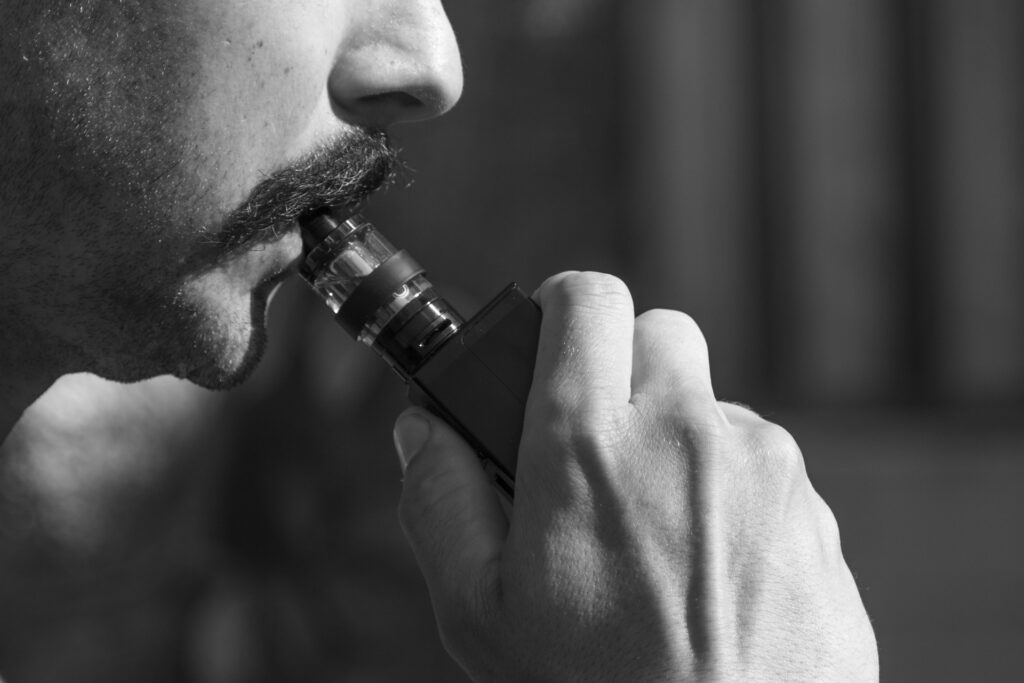
The Alabama Legislature passed dozens of bills on Thursday, with time running out on the 2023 Alabama Regular Legislative Session. Controversial anti-vaping legislation was not one of them. That bill was carried over in the Senate after widespread opposition lobbied Senators not to pass the bill. House Bill 319 (HB319) is sponsored by State Representative Barbara Drummond (D-Mobile). It is being carried in the Alabama Senate by State Senator Garlan Gudger (R-Cullman). Sen. Gudger said, “We do have a few amendments.” State Senator Tim Melson (R-Florence) said the Alabama Cancer Action Network opposed the bill. “This isn’t a quack organization,” Melson said. “They and the Heart Association and the lung people are against this bill.” Gudger said, “They want all tobacco and nicotine in existence eliminated.” “I don’t know how you are going to move it,” Melson said. “I can’t support this if they are against it.” Sen. Rodger Smitherman (D-Birmingham) said, “I think it is a crying shame that instead of doing something, they would rather do nothing. Doing nothing here is going to continue to allow these kids to continue vaping.” “They are going to continue vaping like I don’t know what,” Smitherman said. “They want to yank us around like a yoyo. Look at the impact if you don’t do anything.” Smitherman compared the Senator’s unwillingness to pass health legislation not supported by health associations to the failure of his plan to require a formal due process for school discipline decisions because it was universally opposed by the Alabama state school superintendents. “You care more about these little folks that call you, like the superintendents, than you do the little children,” Smitherman said. Smitherman said that Drummond had a negotiated bill. “She negotiated with them, and they agreed with what that bill was,” Smitherman said. “That’s not right.” “I am not going to stop fighting for the kids,” Smitherman said. “If you don’t pass this bill, they are going to vape for a whole year.” HB319 creates a registry of vape sellers. The Alcohol and Beverage Control Board would run the registry and enforce the bill. It also limits vaping to people 21 and above and fines underage people who vape. “For the sake of the children, take out the due process,” Smitherman told Gudger. Sen. Shay Shelnut (R-Trussville) told Gudger to “carry this over at the call of the chair.” Gudger finally asked that the bill be carried over at the call of the chair. It never came back that day. Gudger later told reporters, “(Health groups) want all tobacco eliminated, and we can’t do that. They want their way or nothing.” Groups like the Alabama Heart Association have opposed this legislation because they object to people who vape being fined by the state and claim that it does not go far enough in regulating tobacco companies. Jada Shaffer is the senior regional lead of governmental affairs for the American Heart Association. “As the mother of a son who started using chewing tobacco at 14 and purchased it at our local gas station, I know this is a problem all too well,” said Shaffer. “I am pleading with lawmakers to take bold steps in ensuring that no child is exposed again to these deadly products and that the retailers in Alabama are held accountable if they sell to minors. Big tobacco targeted kids with fruity flavors and successfully addicted a whole new generation of kids to nicotine. And now they are shifting the blame to kids and penalizing them. HB319/SB271 further victimizes Alabama’s children all over again.” House Bill 319 could be brought back when the Legislature meets for its last day of the session on Tuesday. The legislation would have to be approved by the Senate – and then the House of Representatives would have to vote to accept any changes made by the Senate for it to reach the Governor’s desk. Any legislation not on the Governor’s desk by the close of the legislative day on Tuesday will have to be brought back next year as the regular session will end. The legislature is limited to a maximum of thirty days by the Alabama Constitution. To connect with the author of this story or to comment, email brandonmreporter@gmail.com.
Controversial anti-vaping legislation carried over in the Alabama Senate
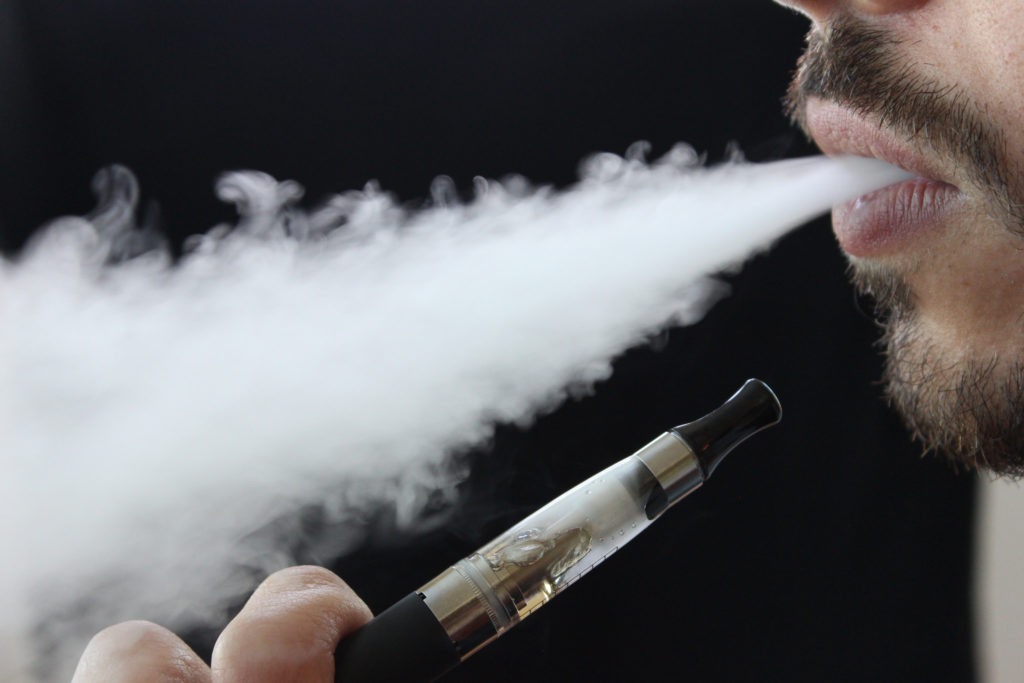
The Alabama Legislature passed dozens of bills on Thursday, with time running out on the 2023 Alabama Regular Legislative Session. Controversial anti-vaping legislation was not one of them. That bill was carried over in the Senate after widespread opposition lobbied Senators not to pass the bill. House Bill 319 (HB319) is sponsored by State Representative Barbara Drummond (D-Mobile). It is being carried in the Alabama Senate by State Senator Garlan Gudger (R-Cullman). Sen. Gudger said, “We do have a few amendments.” State Senator Tim Melson (R-Florence) said that the Alabama Cancer Action Network is opposing this bill. “This isn’t a quack organization,” Melson said. “They and the heart association and the lung people are against this bill.” Gudger said, “They want all tobacco and nicotine in existence eliminated.” “I don’t know how you are going to move it,” Melson said. “I can’t support this if they are against it.” Sen. Rodger Smitherman (D-Birmingham) said, “I think it is a crying shame that instead of doing something, they would rather do nothing. Doing nothing here is going to continue to allow these kids to continue vaping.” “They are going to continue vaping like I don’t know what,” Smitherman said. “They want to yank us around like a yoyo. Look at the impact if you don’t do anything.” Smitherman compared the Senator’s unwillingness to pass health legislation not supported by health associations to the failure of his plan to require a formal due process for school discipline decisions because it was universally opposed by the Alabama state school superintendents. “You care more about these little folks that call you, like the superintendents, than you do the little children,” Smitherman said. Smitherman said that Drummond had a negotiated bill. “She negotiated with them, and they agreed with what that bill was,” Smitherman said. “That’s not right.” “I am not going to stop fighting for the kids,” Smitherman said. “If you don’t pass this bill, they are going to vape for a whole year.” HB319 creates a registry of vape sellers and assigns that and enforcement of the bill to the Alcohol and Beverage Control Board. It also limits vaping to people 21 and above and fines underage persons who vape. “For the sake of the children, take out the due process,” Smitherman told Gudger. Sen. Shay Shelnutt (R-Trussville) told Gudger to “carry this over at the call of the chair.” Gudger finally asked that the bill be carried over at the call of the chair. It never came back that day. Gudger later told reporters, “(Health groups) want all tobacco eliminated, and we can’t do that. They want their way or nothing.” Groups like the Alabama Heart Association have opposed this legislation because they object to young people who vape being fined by the state and claim that it does not go far enough in regulating tobacco companies. Jada Shaffer is the senior regional lead of governmental affairs for the American Heart Association. “As the mother of a son who started using chewing tobacco at 14 and purchased it at our local gas station, I know this is a problem all too well,” said Shaffer. “I am pleading with lawmakers to take bold steps in ensuring that no child is exposed again to these deadly products and that the retailers in Alabama are held accountable if they sell to minors. Big tobacco targeted kids with fruity flavors and successfully addicted a whole new generation of kids to nicotine. And now they are shifting the blame to kids and penalizing them. HB319/SB271 further victimizes Alabama’s children all over again.” House Bill 319 could be brought back on Tuesday. If it does not pass the Senate – and then the House of Representatives approves any changes made by the Senate by the end of the legislative day on Tuesday, the legislation will die as Tuesday is Day 30 of the legislative session – the legislature is limited to a maximum of thirty days by the Alabama Constitution. To connect with the author of this story or to comment, email brandonmreporter@gmail.com.
Alabama Heart Association opposes penalties on teen smokers

On Wednesday, the Alabama Senate Judiciary Committee gave a favorable report to legislation that would penalize both the sellers of vape products to persons under age 21 as well as the youthful offenders themselves. The Alabama Heart Association urged legislators not to penalize the young tobacco users themselves. The Alabama Heart Association joined a chorus of advocates in a letter to lawmakers calling for lawmakers to remove penalties on kids and hold the tobacco industry accountable. House Bill 319 (HB319), sponsored by State Representative Barbara Drummond (D-Mobile), was advanced by the Committee and could be considered on the Senate floor as early as Thursday. Senate Bill 271, sponsored by State Senator Garlan Gudger (R-Cullman), is the Senate companion bill to HB319. The American Heart Association and partners claim that the bill is disguised as a policy to help Alabama’s youth, but in its current form would be harmful to children and give a pass to those selling tobacco products, including e-cigarettes, to minors. The expresses opposition to language in HB319/SB271, saying it further emboldens big tobacco companies. Jada Shaffer is the senior regional lead of governmental affairs for the American Heart Association. “As the mother of a son who started using chewing tobacco at 14 and purchased it at our local gas station, I know this is a problem all too well,” said Shaffer. “I am pleading with lawmakers to take bold steps in ensuring that no child is exposed again to these deadly products and that the retailers in Alabama are held accountable if they sell to minors. Big tobacco targeted kids with fruity flavors and successfully addicted a whole new generation of kids to nicotine. And now they are shifting the blame to kids and penalizing them. HB319/SB271 further victimizes Alabama’s children all over again.” The Alabama Heart Association said that nicotine is a highly addictive drug. The AHA said that their research shows that many students use e-cigarettes and other tobacco products to self-medicate for depression, anxiety, and other mental health concerns. The American Heart Association warns that many e-cigarettes deliver dangerously high levels of nicotine and should never be used by youth. The U.S. Surgeon General warns that nicotine exposure during adolescence may harm brain development and impact learning, memory, and attention. Additionally, brain changes induced by nicotine exposure can make youth more susceptible to addiction to other substances. “The industry spent billions of dollars creating appealing flavors and vapes that were easily hidden from our children,” Schaffer added. “The industry created this problem, and now they want to further punish kids.” Specifically, the Heart Association objects to provisions in HB319/SB27 that would penalize Alabama youths for nicotine addiction while not addressing the real problem of keeping these products out of kids’ hands. The Heart Association added that the bill requires no annual retail compliance check, allows for tobacco and e-cigarettes to be sold at self-service displays, and further wastes state resources on an FDA registry that is not required by the federal Tobacco 21 law. The American Heart Association claims that there is no evidence that putting kids in the court system with fines, suspending kids, or even making them do community service helps with a nicotine addiction. Instead, says Shaffer, kids need help with nicotine addiction through cessation and counseling. According to American Heart Association resources, even though the legal sales age for tobacco is 21, 75% of youth reported they were not refused a sale when trying to buy these products. In 2021 tobacco companies spent $9.1 billion nationwide and approximately $202.2 million in Alabama targeting youth with their products and marketing, including selling tobacco products in candy, fruit, and minty menthol flavors in gas stations, convenience stores, and grocery stores. In 2019, 26.7% of Alabama high school youth reported using tobacco products, including e-cigarettes. Dr. Ronald Lazar, M.D., professor of neurology and neurobiology at the University of Alabama at Birmingham and a member of the local American Heart Association board of directors “It is no secret that tobacco use causes a wide range of health issues, both long and short-term,” said Dr. Lazar. “As a physician, it concerns me when I learn the youngest of patients are smoking and consuming tobacco products, including e-cigarettes. Holding tobacco retailers more accountable for the sale and marketing of these products would mean a safer world for our kids.” At least 44% of teens in the US attend school within 1,000 feet of a tobacco retailer, and 77% of public schools are within a 10-minute walk of a tobacco retailer, which contributes to youth tobacco rates remaining high. “Make no mistake, tobacco companies have grown bolder in their efforts to keep people addicted and misinformed,” added Shaffer. “They support watered-down and less effective tobacco-control measures as a public relations ploy to divert the attention from proven measures. Meaningful change in Alabama requires a comprehensive tobacco retail licensure program, adequate funding for tobacco cessation, comprehensive smoke-free air laws, and increased tobacco taxes. We hope lawmakers will remove the penalties on kids and hold the industry accountable.” SB271 failed to reach the Senate floor by the 27th legislative day of the session, meaning that constitutionally it does not have time to pass. HB319 has been passed by the committee and is awaiting action by the Senate. SB316 is sponsored by Sen. Vivian Figures (D-Mobile). It also bans people below age 21 from using vape or electronic cigarette devices. It is a different piece of legislation than SB271/HB319 and is not opposed by the Heart Association. HB316 passed the Senate unanimously on Wednesday and is awaiting action by the House Judiciary Committee. An earlier version of this article incorrectly identified Figures as the sponsor of SB271. The Legislature will meet next Wednesday for day 27 of the 2023 Alabama Regular Legislative Session. To connect with the author of this story or to comment, email brandonmreporter@gmail.com.
Wes Allen: HB209 prevents absentee ballot harvesting and protects each individual’s right to cast their own ballot

Over the last decade, there have been multiple convictions for absentee ballot fraud across the state of Alabama. As a Probate Judge, a legislator, and now as Secretary of State, I am committed to eliminating election fraud in our state. HB209, sponsored by Rep. Jamie Kiel, makes incredible strides in protecting the rights of Alabama voters to cast their own votes without undue influence. Currently, it is legal for groups operating as non-profits to offer payments in exchange for absentee ballot applications to Alabama registered voters. HB209 would end that. Today, it is legal for out-of-state organizations to mail pre-filled absentee ballot applications to unsuspecting voters across the state, some of whom have moved or who have no intention of voting absentee. HB209 would prohibit this practice. HB209 would make it illegal to pay or to be paid by a third party to collect absentee ballot applications or absentee ballots from Alabama voters. Furthermore, it would eliminate the ability of organizations to sow the seeds of chaos and confusion by sending pre-filled absentee applications into our state. Our elections are the foundation of our constitutional republic, and nobody should be paid for their absentee application or their ballot. Ballot harvesting should not be a job description. Rep. Kiel shepherded HB209 through the Alabama House of Representatives and through the Senate committee. Senator Garlan Gudger will present HB209 for a vote to the entire State Senate and on to Governor Kay Ivey’s desk for her signature. I applaud these two legislators for their efforts to further secure Alabama’s elections and to help protect each individual Alabama voter’s right to cast their own ballot without interference. That is, after all, the foundation of this great nation. Wes Allen is Alabama’s 54th Secretary of State. Allen is a former Pike County judge and served one term in the Alabama House of Representatives representing Pike and Dale Counties.
Alabama Senate passes bill to raise cap on the Alabama Accountability Act
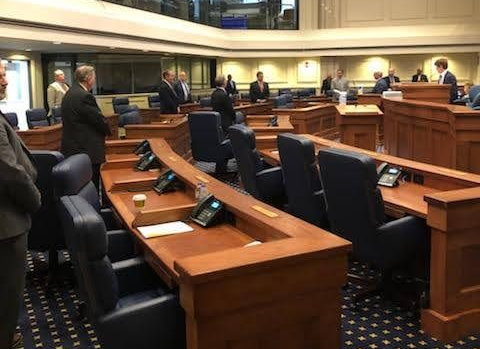
On Tuesday, the Alabama Senate voted to raise the cap on the money that can go to the Alabama Accountability Act (AAA). The Alabama Accountability Act was passed in 2013 to allow parents whose children are zoned to Alabama’s worst-performing schools to choose to apply for a scholarship to go to another public school or a private school. That act is currently capped at $30 million. This legislation would raise it to $40 million next year, and if specific targets are reached in coming years, that could increase to $50 million. Potentially the cap could increase to $60 million over six years. Senate Bill 263 (SB263) is sponsored by State Senator Donnie Chesteen (R-Dothan). SB263 also raises the number of Alabama students who qualify for scholarships to 250 percent of the poverty line. That would be slightly higher than the median income in Alabama. Under the existing rules, only students zoned to the worst six percent of schools can qualify for scholarships to go to a private school or another public school. The legislation would also rename those failing schools as priority schools. Chesteen said that in the old bill, students from just 79 failing schools can apply for the scholarships. This would open it up to students from a school with a D or an F on its report card – 212 schools. SB263 would open up to 25% of the scholarships for students who live outside of those targeted D and F scoring schools if they meet the poverty thresholds. Sen. Bobby Singleton (D-Greensboro) said, “I think this bill takes care of the middle up. It does not help those in the bottom.” “It is not easy to satisfy all the components of all the people involved, and it is not easy to get through the process to get here today; nevertheless, I do not support this bill,” Singleton said. Singleton said that expansion of the AAA would only hurt public schools. “I think this is going to hurt public education,” Singleton said. “I am here to protect those to whom I see that unintended consequences are happening. “Our charter schools, they can take a limited number of students, our private schools, they can take a limited number of students,” Singleton said. “If students leave school B for school A, what they are going to do is leave school B with nobody. If that was a bad school, you just left it worse.” The SGOs have had difficulty over the past year in raising the $30 million to utilize the cap. “If we have not met the cap, why are we bumping it up?” Singleton said. “25% can go anywhere.” “If they meet the threshold,” Chesteen said. “That bothers me,” Singleton said. “They may not qualify at one level, but can roam around the system if they are in poverty.” Sen. Larry Stutts (R-Sheffield) argued against the bill because he felt it did not go far enough. “We have been in last place too long,” Stutts said. “It is important that we make a statement that education is important. It is important for the workforce. It is important to parents.” Stutts is the sponsor of the PRICE Act, which would be a far larger, more expansive school choice bill. “Your bill (the AAA) has only helped 3,200 students in ten years. My bill would help 7,900 students the first year,” Stutts argued. The money for the Accountability Act comes from Alabama taxpayers voluntarily electing to take tax credits so that their income tax dollars go to scholarship granting organizations (SGOs) instead of the Alabama education trust fund. The PRICE Act, on the other hand, would transfer $6,900 per student from the education trust fund to an education savings account that would follow the child to the school of the parent’s choice. “We need universal school choice,” Stutts said. “We need choice throughout the state. The parents know the needs of the children. No one understands the individual needs of the child better than the parents.” Stutts also objected to the fact that the students can get a scholarship up to $10,000 under this bill, while the amount the student would receive under the PRICE Act – would be just $6,900 – the amount of state support that Alabama public schools students receive from the education trust fund on a per capita basis. “Are you willing to say that we carry over your bill tonight and commit to me that we will tie these two bills together and pass these two bills out of the Senate together?” Stutts asked. Chesteen answered, “My plan is to move this bill tonight. I am going to continue to work this bill. If you will continue to work your bill, I will commit to you that I will work with you to get your bill passed tomorrow.” Stutts said, “I appreciate your bill, but I appreciate my bill more.” Singleton warned that expanding school choice could lead to a mass exodus of students from public schools. “You might think that not everybody is going to get up and run, but it might happen,” Singleton said. “It doesn’t say that the child has to fail, just that the school has to fail. They can recruit this star athlete who has a 3.9 to go over here because the school is failing. Usually, when one child leaves, it is the whole family that leaves.” Sen. Garlan Gudger (R-Cullman) said there are no failing schools in his district, so no one in his district qualifies for the scholarships. “They told me back in my district that they are not opposed to school choice, but since no one from the district gets the money, and it takes $30 million out of the education trust fund to oppose this,” Gudger said. “It is hard for me to go back to rural Alabama when the money goes to people in other parts of the state.” Sen. Rodger Smitherman (D-Birmingham) said that more money is going for school choice than raising up the state’s failing schools. “I am up here
Alabama Senate Committee advances phone tax increase
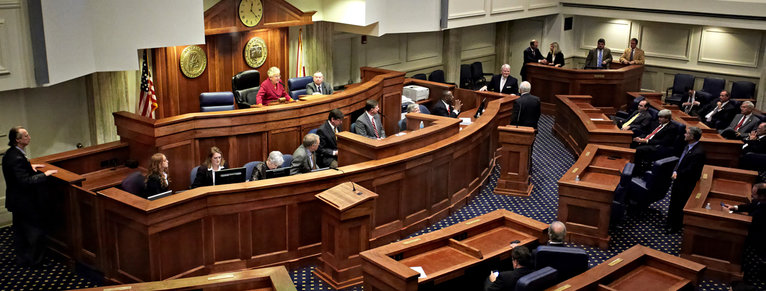
Every Alabamian can expect a tax increase of 98 cents per phone line if the Alabama Legislature and the governor signs legislation to raise a new tax to fund the Alabama Department of Mental Health (ADMH). Senate Bill 328 (SB328) is sponsored by State Senator Garlan Gudger. The controversial phone tax legislation was given a favorable report by the Senate Fiscal Responsibility and Economic Development Committee on Wednesday. The new tax would generate $69 million yearly in new revenues for the state. The money raised by the bill would go to the Alabama Department of Mental Health. Alabama started a 988 crisis phone line last year. The funding from the new phone tax would be used for call centers and an expansion in mental health services, including 988 call centers, mobile crisis services, and crisis centers. The funds would go directly into the non-reverting Alabama 988 Crisis Care Fund in the State Treasury to be managed by ADMH. This bill would also create the 19-member 988 Commission to study the impact of the crisis. Companion legislation in the House is sponsored by State Representative Rex Reynolds. House Bill 389 (HB389) was carried over by the House Ways and Means General Fund Committee on Wednesday. Since this is a tax increase, by rule, it should originate in the House rather than the Senate. An opponent of the legislation told Alabama Today that if you try to oppose this, they accuse you of being anti-mental health, which he is not, but feels that any additional funding for mental health comes from the state general fund (SGF) rather than by creating a new tax. The 98 cent per phone line tax is similar to the $1.88 tax that funds the 9-11 system. That tax originally was just 44 cents per line. Tax opponents oppose growing government by increasing the tax burdens imposed on the people of Alabama. Supporters argue that the high rates of suicide and mental health issues in the state justify the tax increase. SB328 could be considered by the Senate as early as Tuesday. Tuesday will be the 24th day of the 2023 Alabama Regular Legislative Session. To connect with the author of this story or to comment, email brandonmreporter@gmail.com.
Alabama Legislature advances legislation requiring that American iron be used in public works projects

Last week, the Alabama State Legislature passed legislation requiring that American iron be used in all Alabama public works projects. House Bill 157 (HB157) is sponsored by State Representative David Faulkner. According to the synopsis, “Under existing law, when a public works contract requires the use of steel, the contractor performing the contract is required to use steel produced within the United States. This bill would provide that when a public works contract requires the use of iron, the contractor performing the contract would be required to use iron produced within the United States.” The Senate Fiscal Responsibility and Economic Development Committee voted unanimously to give the bill a favorable report Wednesday. Sen. Garlan Gudger chairs the committee. Rep. Faulkner told the Committee that HB157 requires that for public works projects. “You use American iron and steel. Federal law is already that way,” Faulkner said. Sen. Josh Carnley asked, “Are we putting anybody at a disadvantage?” “No, we are not,” Faulkner answered. “We have several iron manufacturers in Alabama.” Faulkner explained that Alabama law already requires the use of American steel. This legislation simply adds iron to it so that state law matches federal law. HB157 passed the Senate on a 32 to 0 vote. It has already passed in the House, so it now goes to Governor Kay Ivey for her consideration. As of Tuesday, 765 bills have been introduced in this legislative session. Tuesday was Day 19 of the 2023 Alabama Regular Legislative Session. To connect with the author of this story or to comment, email brandonmreporter@gmail.com.


